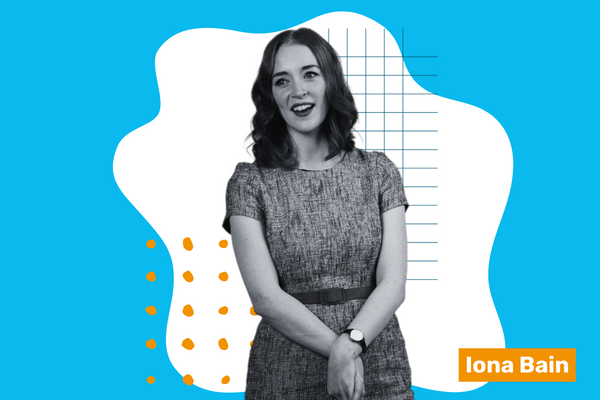“The reason why I was so thrilled to be asked to be an ambassador for National Numeracy was that I have dyscalculia and I am someone who struggled a lot with numbers when I was younger,” explains Iona.
“I’ve also chosen to work in finance and I write and speak about money every day, which is constantly pushing me out of my comfort zone.”
Lived experience of maths struggles
“I’m really excited that this year, National Numeracy Day had somebody involved who has lived experience of maths struggles,” says Iona.
“I know what it’s like to not be able to do sums effortlessly and I feel that having that kind of representation is incredibly important because it shows people that if I can improve my approach to maths, then anyone can, and if I can get more comfortable and confident doing everyday maths then anyone can.”
Dyscalculia is something relatively few people know much about, and Iona says it’s important not to stigmatise.
“You can definitely describe dyscalculia as 'dyslexia with numbers',” she explains.
“I think it’s a good description in so far as it conveys how it is not about people being lazy or stupid – you would never describe someone who has dyslexia as being either lazy or stupid, you would understand that their brains just do not process words and letters in the same way that everybody else’s does.
“I think it’s the same with dyscalculia, it’s really important that we don’t stigmatise people, also that we don’t make out that they are completely incapable of doing any kind of maths, or that they will never be able to handle numbers.
“Just as someone with dyslexia can read, speak and deal with language and get through everyday life, it’s not like it’s completely debilitating, and it’s the same with dyscalculia.”
Don’t put yourself under pressure with maths
Having struggled with maths herself, Iona understands the importance of taking your time over calculations.
“One of the things I always advise people, is don’t put yourself under any pressure,” she says.
“Try not to put yourself in situations where you might be under pressure, or at least ask the people around you to give you a bit of time and space so that you can get the sums right. I always say that life is not a competition, there will be people who will be able to do those sums easily – which is fantastic – but there’ll be people who will not be able to do those sums easily but so long as they understand how they can get the answers, that’s all that matters.”
Iona has recorded a ‘Making Maths Work for Women and Girls’ Big Number Natter with fellow National Numeracy ambassadors Rachel Riley and Katya Jones, in which they discuss their different relationships with numeracy.
She has also put together a list of tips for feeling better about numbers.
Build confidence with maths over time
“The main message is that if I can get to grips with maths and feel confident enough to talk about money on a daily basis then anyone can,” smiles Iona.
“You can do it gradually over time and you can find hacks and tools that will help you along the way. There’s no shame using a calculator, there’s no shame asking people if you can take time over sums and there’s no shame admitting that numbers maybe don’t come naturally to you.
“Nonetheless, we can definitely all get to a point where we have a base level of confidence around numbers and if we can get to that point it will have so many beneficial knock on effects, not least for our finances.”





